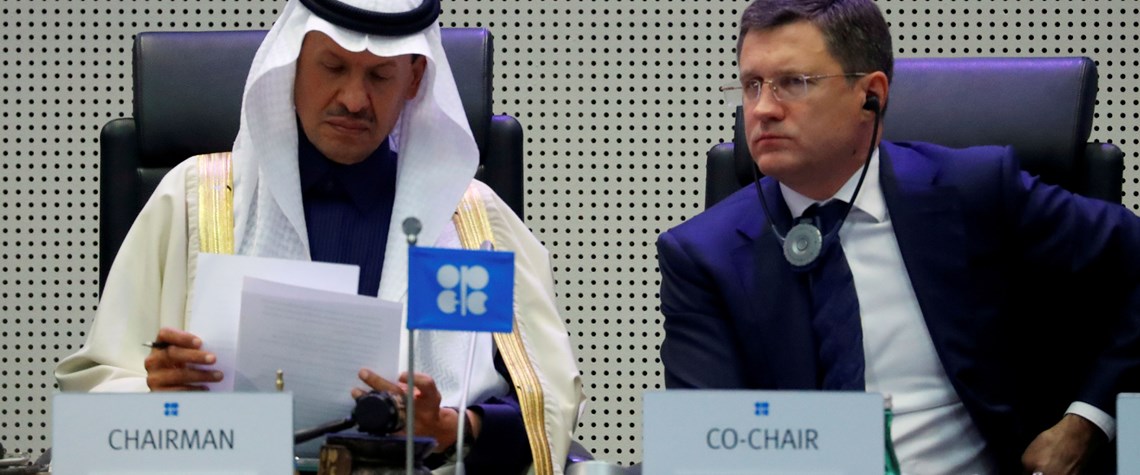Opec+ talks failure highlights virus uncertainty
Uncertainties over the economic fallout of the coronavirus epidemic a harbinger of more short-term volatility
A freak pneumonia-causing coronavirus spreading out of China, Covid-19, has triggered record weekly declines in world markets and slashed global crude demand—but its impact is so difficult to gauge accurately that world powers are struggling to agree on the best policy tools to deal with the crisis. This appears to be the immediate takeaway from the meeting between Opec and Russia in Vienna on Friday, where producers failed to negotiate a new output cut in order to shore up declining oil prices. It is not just policymakers who do not see eye-to-eye with each other. Analysts also differ widely in their economic and energy projections. Investment bank Goldman Sachs, for example, sees Brent

Also in this section
18 February 2026
With Texas LNG approaching financial close, Alaska LNG advancing towards a phased buildout and Magnolia LNG positioned for future optionality, Glenfarne CEO Brendan Duval says the coming year will demonstrate how the company’s more focused, owner-operator approach is reshaping LNG infrastructure development in the North America
18 February 2026
The global gas industry is no longer on the backfoot, hesitantly justifying the value of its product, but has greater confidence in gas remaining a core part of the global energy mix for decades
18 February 2026
With marketable supply unlikely to grow significantly and limited scope for pipeline imports, Brazil is expected to continue relying on LNG to cover supply shortfalls, Ieda Gomes, senior adviser of Brazilian thinktank FGV Energia,
tells Petroleum Economist
17 February 2026
The 25th WPC Energy Congress, taking place in Riyadh, Saudi Arabia from 26–30 April 2026, will bring together leaders from the political, industrial, financial and technology sectors under the unifying theme “Pathways to an Energy Future for All”







